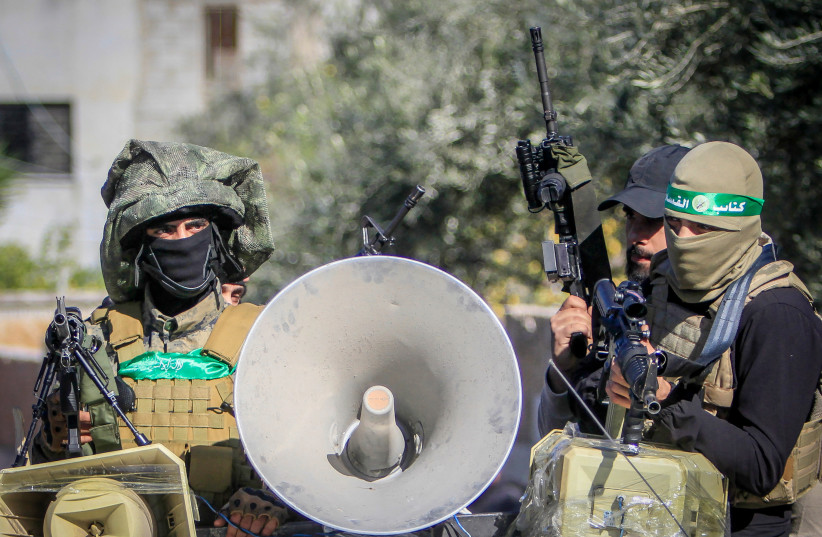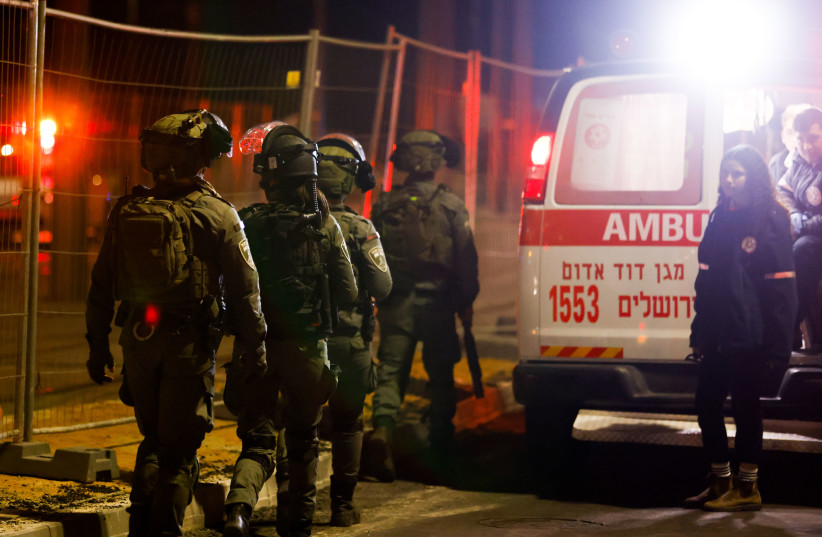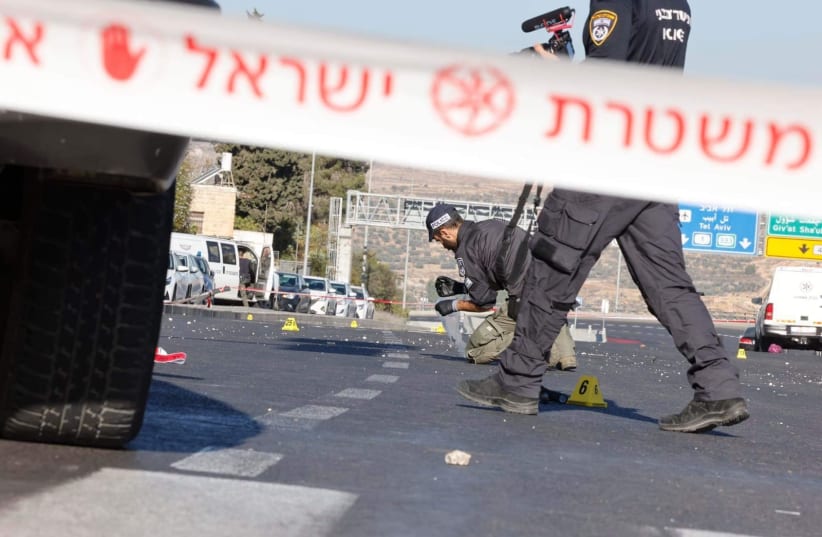The mass murder of Israelis on Friday night has led to the usual wave of condemnations and also the tendency to dehumanize the victims by portraying them as part of a “cycle of violence” or as victims that were harmed due to a decades-long “conflict.” The reactions to the attack clearly fit into several categories.
One type of condemnation singles out the perpetrator and terror attack and commemorates the victims. A second type tends to condemn the attack but also contain a reference to a “cycle of violence.” A third type tends to try to excuse or mitigate the mass murder by referencing “occupation” or “apartheid” and castigating the victims as “settlers.”The latter two types of reactions tend to have a kind of “all lives matter” vibe. This is because they don’t seem to be able to condemn attacks on Israeli victims without trying to reference something else. This kind of condemnation is problematic because it doesn’t allow Israelis to be victims, it always tries to whitewash or add context that dehumanizes the victims by turning them into objects of a larger conflict. This type of dehumanization is problematic because it is possible to condemn attacks on Israeli civilians, full stop.
Pre-packaged responses to continued terror attacks
Many of the reactions to Friday’s attack felt pre-packaged, with the usual reference to a possible “third intifada” and “cycle of violence”; and in other instances references to “occupation.” These kinds of reactions could be heard at the UN and on major media, such as the BBC. This reads like a script for tragedy. When Israel carried out a raid on Jenin on Thursday, in which nine Palestinians were killed, reports depicted this an escalation by Israel.

Then, on Friday when a Palestinian murdered seven Israelis on Shabbat, the question raised on some media was about the “cycle” of violence. What is the cycle? The raid on Jenin was conducted to prevent Palestinian Islamic Jihad from preparing a terror attack. That terror group has been involved in increasing clashes with Israel over the last years.
It’s not a cycle, it’s a one way conflict in which the Iran-backed PIJ stockpiles illegal weapons and threatens Israel from places like Jenin. PIJ is an illegal armed terror group. There’s no cycle, it’s Israelis trying to pre-empt the group from expanding and carrying out attacks.On the other hand the attack in Jerusalem, apparently carried out by one perpetrator who targeted Jewish civilians, is not a cycle. It’s two different incidents, one in Jenin and one in Jerusalem. Is there evidence that PIJ is involved in both? Not according to reports. Just because long wolf terrorists are angered by other incidents doesn’t turn their actions into a cycle.
The reason the “cycle” cliché is problematic is also because it is trotted out almost every day without introspection. The UN Special Coordinator for the Middle East Peace Process condemned a “cycle of violence” on January 26 and back on January 18 France’s mission to the UN also said the “cycle of violence” should end. January 18 was even before the Jenin raid and the Jerusalem attack.

These kinds of statements are banal and they are becoming so common that it reads like one of those articles written by artificial intelligence, where you just plug in the new parameters and the statement comes out the other end.
Victims deserve better. Not every Palestinian and Israeli is a victim of a “cycle.” There are individual actions behind these tragedies. This is not a script for a play, but human lives cut short. The “occupation” or “Israeli control” is not an excuse for attacks or a mitigating reason or them. Perpetrators who purposely target civilians are not fighters targeting an “occupying force,” they are committing a murderous crimes.
It's possible for commentators to write about the Jenin clashes and also about the attack in Jerusalem and see each as its own incident, and each civilian death as a tragedy. When commentators try to churn this into one process it not only wreaks of “all lives matter” excuses but also is not helpful either for peace or for humanizing the victims on both sides.
